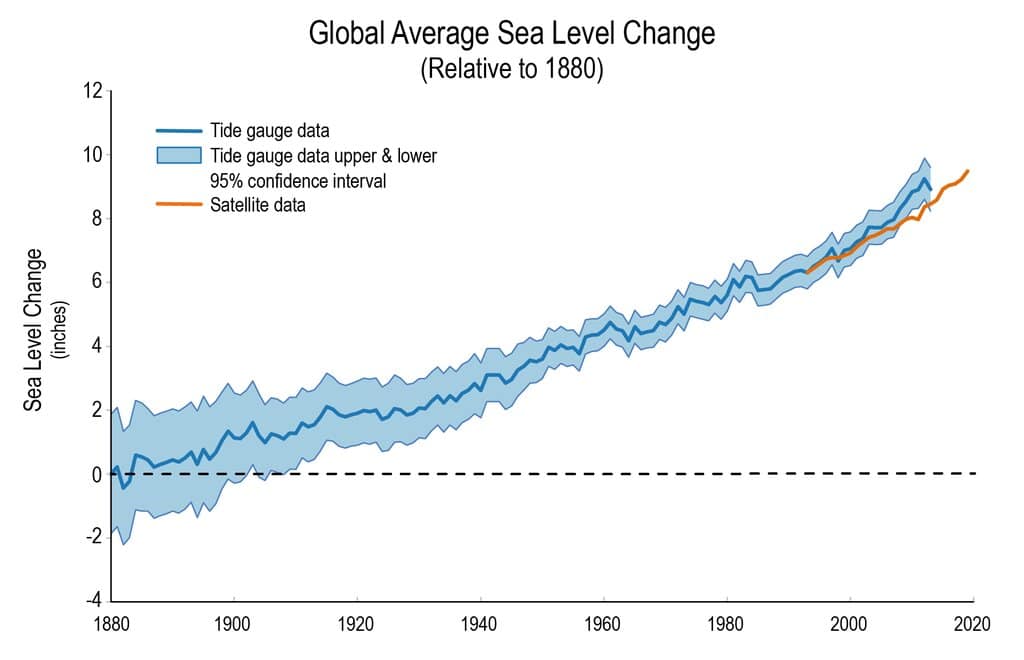Speaking to the United Nations Council on Tuesday, Guterres urged governments to act as climate change-fuelled sea level rise threatens the lives of more than 900 million people living in low-lying coastal areas around the world.
—
Accelerating sea level rise could displace one in every 10 people on the planet, triggering massive economic, social, and cultural disruptions worldwide, UN Secretary-General António Guterres told the UN Security Council on Tuesday.
He described the predicted dislocation of nearly 900 million people living in low-lying coastal areas as a “mass exodus of entire populations on a biblical scale” that would drive “ever-fiercer competition for fresh water, land and other resources.”
Humans started measuring the level of seas more than 200 years ago and found this to be an important climate indicator of how rapidly global warming is accelerating. Today, sea levels are rising more than twice as quickly as they did for most of the 20th century due to increasing Earth temperatures.
Throughout most of the last century, seas rose at a rate of 1.4mm per year. However, between 2006 and 2015, the rate nearly doubled, reaching about 3.6mm annually. According to last year’s State of the Climate Report by the World Meteorological Organization, in 2020, the sea was at its highest recorded level, with the global mean reaching 91.3mm above the average in 1993, the year that marks the beginning of the satellite altimeter record. Not surprisingly, 2020 was also among the three warmest years the world has ever had with tropical cyclones occurring well above average at the same time.

Figure 1: Sea Level Rise, 1880-2020
You might also like: What Is Causing Sea Level to Rise?
Sea-level rise projections show that, even if the world follows a low greenhouse gas pathway, the level of seas globally will continue to rise up to about 0.7m by the end of this century. However, should the world fail to cut down emissions and reach the 3C or even 4C mark, sea levels could rise as much as 2.8m above 2000 levels by 2100.
According to the United Nations, the potential costs associated with damage caused by sea level rise could reach US$111.6 billion by 2050 and more than $360 billion by the end of the century.
Speaking about the “dramatic” threats of sea level rise to global peace and security, Guterres called on governments to tackle pressing issues such as poverty, develop international laws to protect those affected and displaced by rising seas, and slash emissions since how much sea levels will rise in the coming years is mainly dictated by the level of carbon dioxide in the atmosphere.
The UN warned last year that the world is on track to warm well above 1.5C – the critical threshold ascribed in the landmark 2015 Paris Agreement. The news came as the atmospheric concentration of the three greenhouse gases – carbon dioxide, methane, and nitrous oxide – all hit new record levels. Reaching 2C or more of global warming would be “a death sentence for vulnerable countries,” Guterres said on Tuesday.
The UN chief also urged developed countries to deliver on the loss and damage fund – the historical deal reached at Egypt’s COP27 last year to help developing countries that are “particularly vulnerable” deal with the harm caused by global warming – as well as to double adaptation finance and unlock private financing “at a reasonable cost.”
You might also like: Sea Level Rise Projections: Top 10 Cities at Risk of Flooding


















